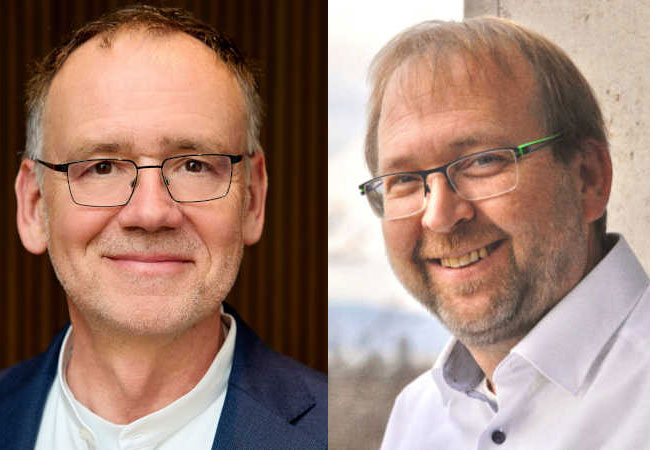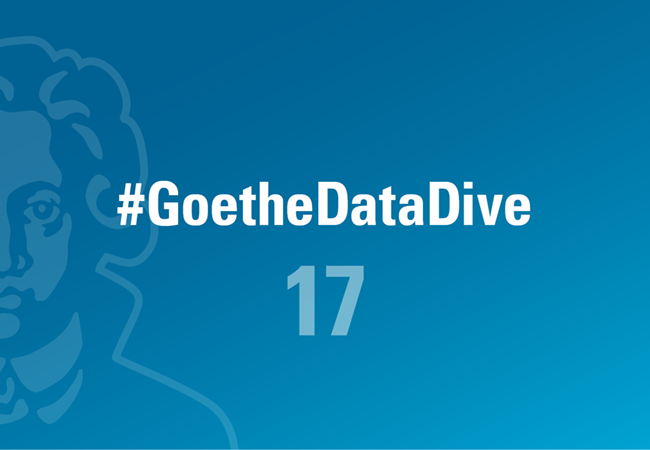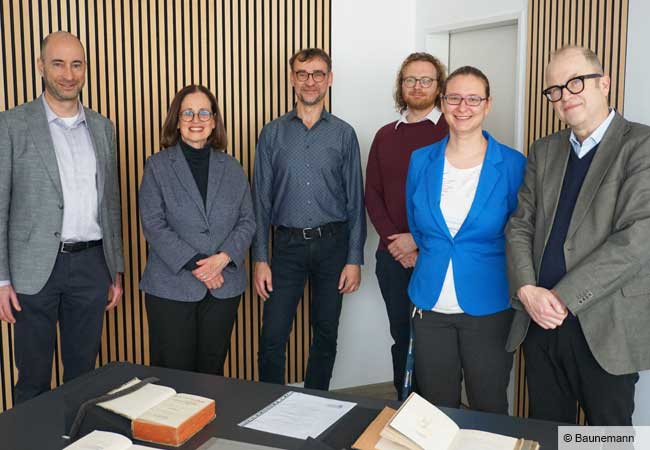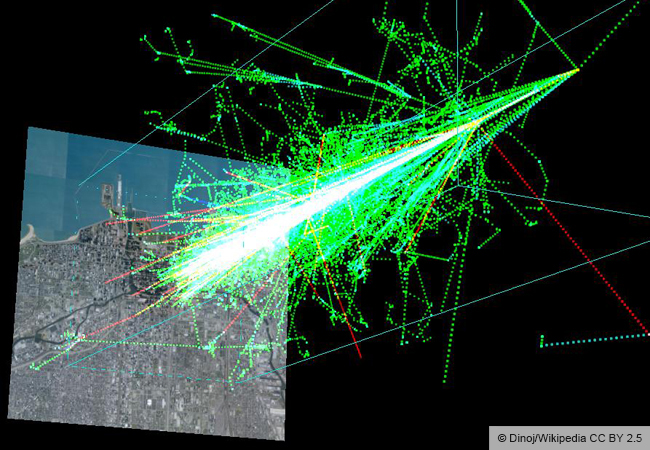Science Minister Timon Gremmels and Digital Minister Kristina Sinemus attend ceremony marking the official start of “Baby Diamond”
Hesse took a quantum leap today with the official commissioning of the federal state’s first quantum computer, located at Goethe University Frankfurt. The ceremonial start-up was attended by Science Minister Timon Gremmels and Digital Minister Prof. Dr. Kristina Sinemus. Known as “Baby Diamond”, the quantum computer has five quantum bits and runs at room temperature. Goethe University researchers and students will use it to investigate, among others, how it can perform special tasks in large supercomputers.
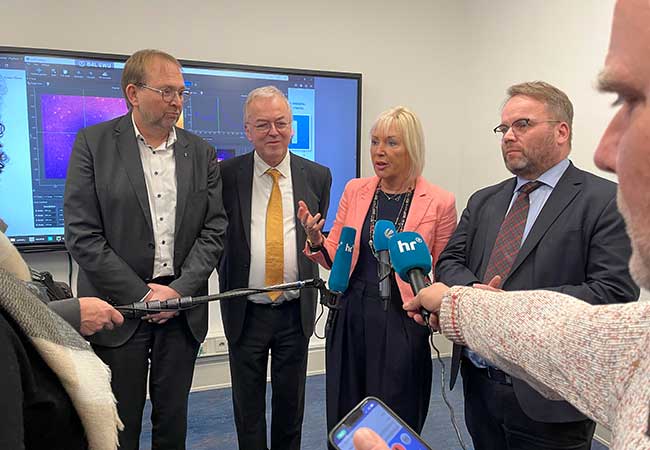
Although the heart of the “Baby Diamond” is barely larger than your regular stand-alone PC, it represents a completely new generation of computer: Hesse’s first quantum computer was officially put into operation at Goethe University today. Developed by XeedQ, “Baby Diamond” can be operated at 20°C and is therefore very suitable for research – in contrast to other quantum computers, which have to be cooled with liquid helium to temperatures close to absolute zero. The first applications for Goethe University’s new “Baby Diamond” optimization specialist include investment portfolios in the financial sector, schedules for nurses and problems in quantum chemistry. That being said, the supercomputer’s primary use will be research: In addition to developing algorithms for the quantum computer, researchers and students will also be able to modify the generation of quantum bits. There are plans to grant access to users of the National High Performance Computing (NHR) alliance.
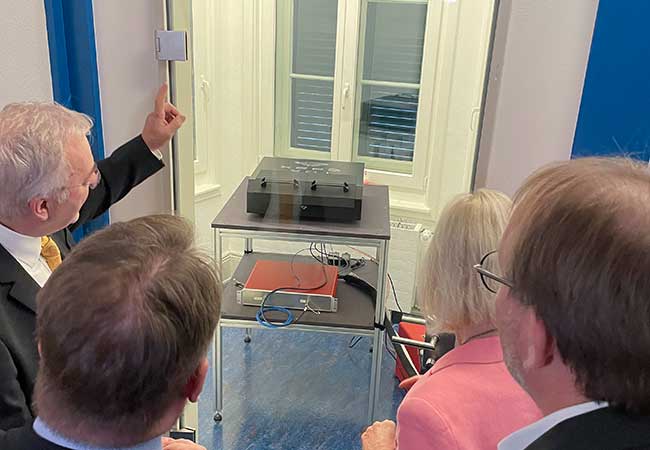
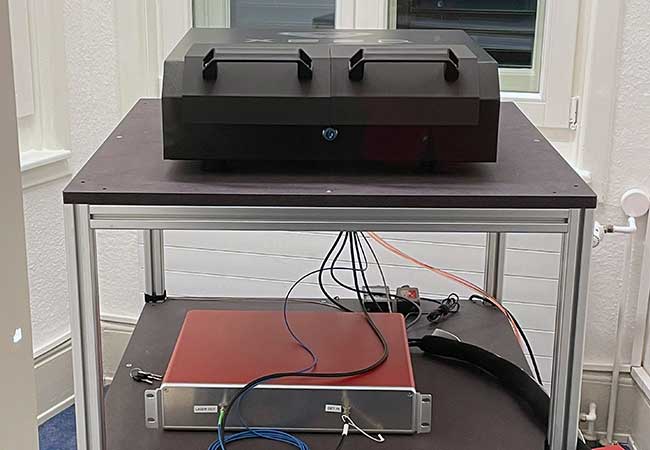
Prof. Enrico Schleiff, Goethe University President, emphasizes: “Baby Diamond, which we are launching today, is located very close to the place where Otto Stern and Walther Gerlach 100 years ago conducted their famous experiment at Goethe University, thereby laying the foundation for this quantum computer’s construction. Today we are witnessing – once again at Goethe University – the beginning of Frankfurt’s path to a quantum future. In addition to financing this step into a new era, Goethe University is also taking on a pioneering role among German universities.”
Timon Gremmels, Hessian Minister of Science and Research, Arts and Culture, says: “The first functioning quantum computer at a Hessian university is truly a cause for celebration. Goethe University’s competence and expertise in traditional high-performance computing is demonstrated by its impressive successes and good rankings among the most powerful and energy-efficient high-performance computers worldwide. This is supplemented and enriched by the new quantum computing technology. The interaction between traditional high-performance computers and quantum computers will definitely continue to play a decisive role in the future. We need the courage to try out new things, test new technologies in practice and integrate tried and tested methods. All of this is being done here on site – testimony to the fact that the state of Hesse is at the forefront of development.”
Prof. Kristina Sinemus, Hessian Minister for Digitalization and Innovation, is convinced: “Quantum computing is a key technology of the future, offering enormous potential for value creation and innovation. In Hesse, we laid a strong foundation in recent years to actively shape this development – with an excellent ecosystem of cutting-edge research, artificial intelligence and applied quantum computing, which is also firmly anchored in our digital strategy. The launch of ‚Baby Diamond‘ at Goethe University Frankfurt is an impressive demonstration of how Hesse is helping to shape the digitalization of Europe.”
Ulrich Schielein, Goethe University Vice President and Chief Information Officer, adds: “The exciting thing about Baby Diamond is that our researchers and students can control even small details of the microwave pulse shapes manipulating the quantum bits and their interactions. With ‘Baby Diamond’, we can give Goethe University students the unique and currently the only opportunity in Germany to come into direct contact with a real quantum computer.” Schielein adds that, in a few years‘ time, Goethe University’s extensive practical experience coupled with its theoretical expertise could qualify it to apply for a 100-qubit class quantum computer, which would put the university into an academic pole position.
Prof. Thomas Lippert, Professor of Modular Supercomputing and Quantum Computing at Goethe University Frankfurt and Head of the Jülich Supercomputing Centre (JSC), says: “Beyond Frankfurt and Hesse, Baby Diamond is an anchor for cooperation with important partners: Goethe University just joined the John von Neumann Institute at JSC and, with Baby Diamond, will become a partner of the Jülich user infrastructure for quantum computing. In return, Baby Diamond users will gain access to further quantum computing systems.”


